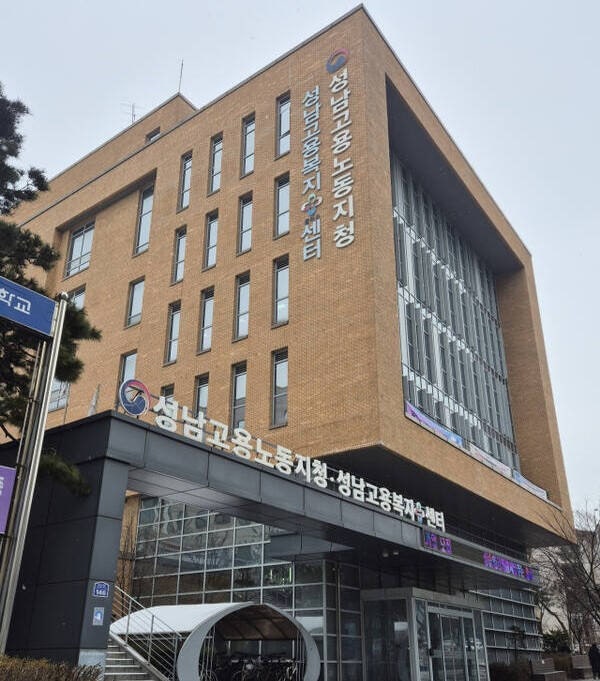
Why Recent Labor Law Updates Matter for Foreigners in Korea
Welcome to our blog! Today, we're diving into a critical issue that affects many foreign workers in Korea—the challenges related to unpaid wages and legal protections. This is not just a local issue but a global concern that affects many expatriates living and working here. Understanding these developments can empower you and your community.
Recent news from the Gyeonggi Province highlights the violation of labor rights, particularly concerning unpaid wages for foreign workers. This incident underscores the continuous need for transparency and support in the workplace, especially for expatriates who might face unique difficulties navigating the Korean labor market.
🌏 What's happening in Korea? (Quick overview)
A recent case brought to light the struggles of foreign workers in Korea when a business owner in Gyeonggi Province was accused of withholding wages from a foreign female employee. Despite multiple opportunities to comply with the investigation, the owner has faced serious repercussions for ignoring labor regulations, further emphasizing the need for robust protections for foreign workers.
💡 Why this matters for foreigners? (Impact analysis)
This incident illustrates the vulnerabilities that foreign workers may face, particularly concerning wage theft. It serves as a reminder for expatriates to be aware of their rights and protections under Korean labor laws. For many foreign nationals, navigating the legal landscape can be daunting, making it crucial to understand your entitlement to fair wages and how to seek help if these rights are violated.
📌 How to take advantage of this? (Step-by-step guide, if applicable)
Foreigners should be proactive in understanding their rights. Here are some steps to take:
- Familiarize yourself with the Korean labor laws: Know your rights regarding wages, working hours, and working conditions.
- Keep records: Always maintain documentation of your employment terms, payment logs, and communications related to your employment.
- Seek help: Don’t hesitate to reach out to local embassies or labor rights organizations if you face challenges.
- Report violations: Use available resources to report any wage theft or legal violations to the labor authorities.
🇰🇷 Understanding Korea's system (Cultural & bureaucratic insights)
Korea’s labor laws are structured to protect all workers, including foreigners. However, language barriers and cultural differences can hinder awareness and enforcement of these rights. It is essential to engage with local organizations that support expatriates and gain a clearer understanding of the labor environment.
🌟 Tips for foreigners living in Korea
Here are some practical tips for ensuring your experience in Korea is positive:
- Build a network: Form connections with other foreign workers and locals who can offer support and insights.
- Learn some Korean: Even basic language skills can enhance your ability to communicate about rights and concerns.
- Stay informed: Regularly check for updates on labor rights and any changes in legislation that may affect you.
🔮 What's next? (Future trends & additional insights)
The Korean government has been moving towards increased protection for all workers. Expect ongoing discussions about labor rights protections and more stringent regulations against companies that violate these rules. As awareness grows, so does the potential for systemic changes that favor fair treatment in the workforce.
🇰🇷 Learn Korean from this Article!
Improve your Korean language skills with these key phrases from the article:
🔤 Korean Phrase 1: "임금을 체불하다"
🔤 Pronunciation: imgeumeul chyeobada
🔤 English Translation: "to withhold wages"
🔤 Usage Tip: Use this phrase when discussing issues related to unpaid wages.
🔤 Korean Phrase 2: "근로기준법"
🔤 Pronunciation: geunro gijunbeop
🔤 English Translation: "Labor Standards Act"
🔤 Usage Tip: Refer to this when talking about labor rights in Korea.
🔤 Korean Phrase 3: "노동부 조사"
🔤 Pronunciation: nodongbu josa
🔤 English Translation: "labor department investigation"
🔤 Usage Tip: Use this phrase when discussing the role of labor authorities in wage disputes.
🙋 Essential FAQs for Foreigners
Can foreigners participate or apply for labor investigations?
Yes, foreigners have the right to report labor violations and seek legal recourse in Korea. It is encouraged to do so in a timely manner.
Do I need to know Korean for this?
While knowing Korean helps in navigating the system, many labor rights organizations provide assistance in English and other languages.
Where can I find official details?
You can find official information on labor rights by visiting the Ministry of Employment and Labor's website or contacting your local embassy.
We hope this article has shed light on a vital issue affecting many expatriates in Korea. Stay proactive, stay informed, and support each other in your community!
📱 Get the BeraKorean App & Stay Updated!
Want to improve your Korean skills and stay informed about life in Korea? Download the BeraKorean app for exclusive content:
- 📱 Android: Download on Google Play
- 🍎 iOS: Download on App Store
📺 Follow us on BeraKorean YouTube for Korean lifestyle & language content!
🌏 Visit berakorean.com for more updates, news, and insights on living in Korea.
🔗 Read the Original Korean Article
Want to dive deeper? Check out the original article here:
📢 Tags
#KoreaNews #LifeInKorea #ForeignersInKorea #KoreaOpportunities #KoreaLiving #LearnKorean #KoreanLanguage